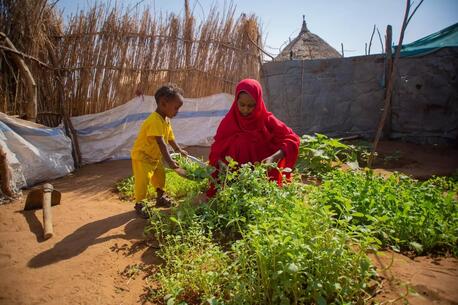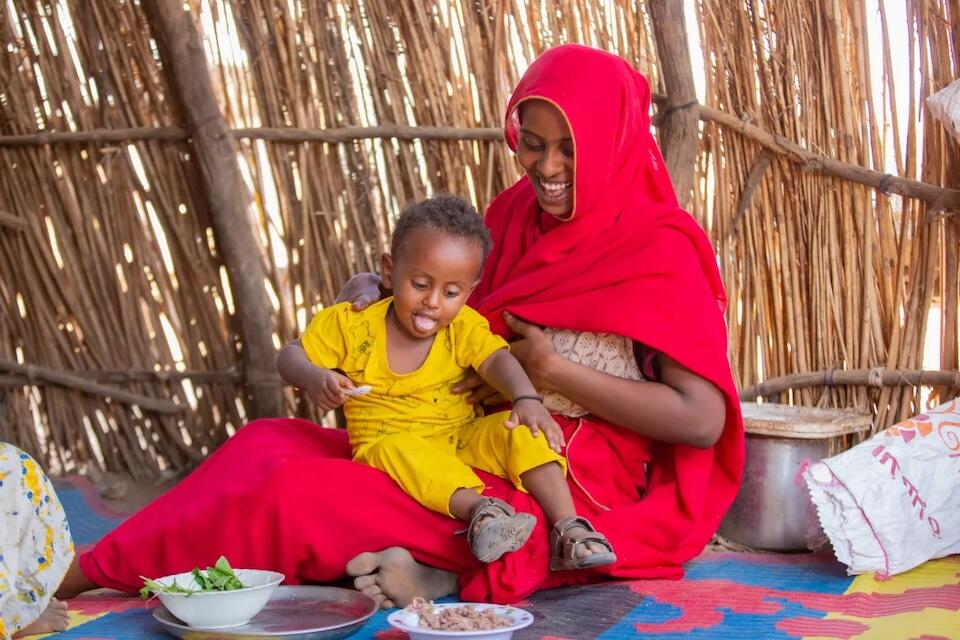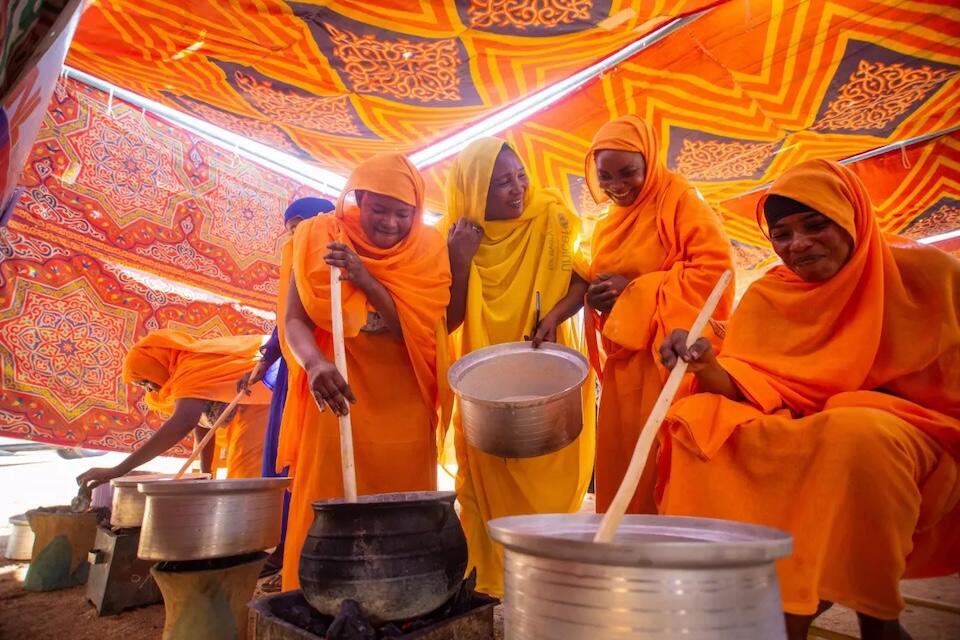
UNICEF Helps Mothers in Sudan Start Their Own Vegetable Gardens
While Sudan grapples with one of the largest malnutrition crises in the world, UNICEF and partners continue to invest in the prevention of all forms of malnutrition to protect children from life-threatening diseases and give them an opportunity to thrive. A look at one solution that is working for mothers in Kassala state.
A local solution for improving children's diets
UNICEF's emergency response in Sudan — a country gripped by war and looming famine — includes tackling child malnutrition through a combination of prevention, early detection and treatment.
Mother Support Groups (MSG) that UNICEF established in Kassala state focus on prevention — equipping caregivers with knowledge of optimal infant and young child feeding practices and promoting healthy diets.
Under the initiative, each mother who is trained is then tasked with training 10 more. One focus is on how to prepare nutritious, balanced meals using readily available foods — including what can be grown at home.
Ohag, mother of 5-year-old Sojood and 19-month-old Idriss, started her own vegetable garden with UNICEF's help; skills, seeds and tools were all provided through the MSG.
Now, no meal is complete without nutritious green vegetables. Watch the video:
Ohag says she has learned a lot during the UNICEF-supported information sessions — including how sound nutrition supports healthy growth and development and also arms children against disease by strengthening their immune systems.
Before she started growing her own, green vegetables were hard to come by. Her home village Amara is in Refee Kassala locality, an arid area that is prone to long dry spells. At the market, vegetables were often scarce — and pricey.
“The market where I bought vegetables was very far and I couldn’t go every day,” Ohag says. “Sometimes when I got the vegetables, preserving them was difficult. They would rot after a few days.”
Her thriving garden yields a bounty of fresh leafy, nutrient-rich greens, including okra, watercress and purslane. Even with water scarcity in the locality and the hot temperatures almost all year round, Ohag has committed to collecting and sometimes buying water to maintain her garden.
“Despite the difficulty in getting enough water, I planted the vegetables, and we are benefiting from it greatly,” she reaffirms. "I cook various kinds of dishes every day. The vegetables provide my children with different vitamins and minerals so that their diet is varied."

Nutrition support integral to UNICEF's emergency response in conflict-affected areas
Since Sudan's war broke out a year ago, UNICEF has been working steadily to expand its partnerships with national and international NGOs to increase the reach of critical nutrition interventions across the country — and especially in high-risk areas in Darfur, Kordofan, Eastern, and Central states, and in displacement camps.
Sudan represents the largest child displacement crisis in the world, with over 4 million children displaced by fighting since April 15, 2023.
UNICEF also continues to take all possible measures to ensure that severely malnourished children in Darfur and other states have access to lifesaving therapeutic feeding supplies, including Ready-to-Use Therapeutic Food (RUTF).

Learn more about UNICEF's nutrition programs around the world.
Support this work. Donate today.
HOW TO HELP
There are many ways to make a difference
War, famine, poverty, natural disasters — threats to the world's children keep coming. But UNICEF won't stop working to keep children healthy and safe.
UNICEF works in over 190 countries and territories — more places than any other children's organization. UNICEF has the world's largest humanitarian warehouse and, when disaster strikes, can get supplies almost anywhere within 72 hours. Constantly innovating, always advocating for a better world for children, UNICEF works to ensure that every child can grow up healthy, educated, protected and respected.
Would you like to help give all children the opportunity to reach their full potential? There are many ways to get involved.





